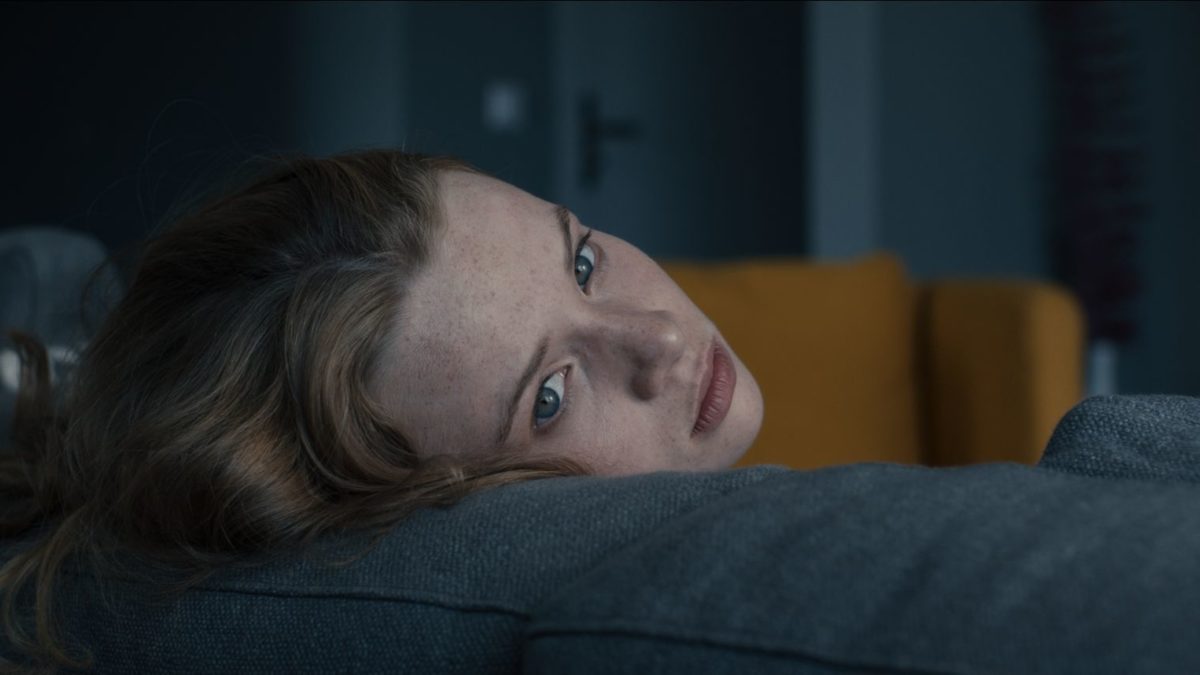Film Review: ‘Blue My Mind’
By Jessica Kiang
LOS ANGELES (Variety.com) – It is the first day at a new school for teenaged Mia (Luna Wedler). At lunch break, a girl shyly tries to make friends. But the pouty, pretty Mia, who is just days away from her first period and is perhaps taking this new start as an opportunity to better her social standing, has her eyes on a different clique. Wild-child Gianna (Zoë Pastelle Holthuizen), all silky waist-length hair and bare midriff, is the sexually precocious center of a trio of girls (orbited by an undifferentiated constellation of good-looking but oafish boys) that will soon become a quartet with Mia’s inclusion.
The setup for actor-turned-writer/director Lisa Brühlmann’s debut feature is beautifully drawn and remarkably well-performed especially by Wedler and Holthuizen, but it’s hardly anything we haven’t seen in a hundred coming-of-age tales before. But then suddenly there’s Mia standing over her living room tank of tropical fish, scooping them alive and wriggling into her mouth, chewing and swallowing, her eyes glassy and manic.
At first, the incipient symptoms of Mia’s — how to put it — disorder, are cleverly paralleled with those of the more humdrum psychological issues that can plague teenage girls on the cusp of maturity. She gulps down a glass of salt water (a trick bulimia sufferers use to induce vomiting); she lashes out at her mother (Regula Grauwiller) with a physical force that she doesn’t seem to know she has; she develops a sudden awareness of a physical abnormality that her doctor insists she must have had since birth, and cuts away at herself in a way that explicitly evokes self-harm. And all of this exists amid a haze of MDMA, benzedrine, pot, and alcohol that becomes headily entwined with parental rebellion, sexual competitiveness, and perhaps, it is hinted, physical attraction between the girls, as they party and shoplift and dare each other on to ever more dangerous behavior.
Up to a point, the central analogy works rather brilliantly. The menacing yet dreamlike tone grounds the film’s dark-fairytale transformation, flattered by DP Gabriel Lobos’ elegant, sinuous camerawork and blue-gray aqueous palette that somehow retains an element of underwater grace even when lit in the druggy hot-pink tones of a late-night party turned shockingly predatory; the low-key electro-burble of Thomas Kuratli’s sparingly used score; and Patrick Storck and Gina Keller’s pristine sound design, which features the dripping and rushing of water as an ever-present mnemonic. As the conductor of this particular symphony, Brühlmann shows a thematic control unusual for a neophyte, making the film’s gradual descent into all-out body horror immersively discomfiting. As Mia’s condition worsens, and she struggles to conceal it from Gianna and the others, “Blue My Mind” even recalls Julia Ducournau’s recent femme-centric horror touchpoint “Raw,” only without that film’s macabre sense of humor. Instead, this is a sincere yet nightmarish bedtime story that may have trace DNA from a famous Hans Christian Andersen folktale, but in its admirable commitment to the grotesque feels more like a modern-day Brothers Grimm fable.
But at some point the allegory slithers out of Brühlmann’s grasp, and grows too large for its tank. Rather like its misleadingly punny title, “Blue My Mind” wants to work on multiple levels, but falters to become a slightly unconvincing, if well-made, single-entendre. Mia’s problems become less relatable as they become more real, her fears of her own “freakishness” become paradoxically less interesting the more they’re revealed to be based in physical fact. And so the story’s allegorical power is lessened as it plays out alongside the very things — like sexual confusion and body dysmorphia — that it’s supposed to be an allegory for. Our heroine is contending with all the usual pressures of girlhood and has the bruised legs, syndactyly, and shedding skin of her pesky metaphor to deal with, too.
The demons of adolescence that so much of the imagery evokes are powerful and dangerous because they are imaginary. Anorexia, negative body image, self-harm, and the joyless promiscuity and sexual degradation that Mia pursues are the kinds of heartbreaking punishments that young girls inflict on their bodies for differing, in ways that often only they perceive, from some notional ideal of womanly perfection. Everybody feels like a freak at this age and it doesn’t seem an especially helpful conclusion to have the story confirm that freakishness, and to suggest that the solution for Mia is self-imposed exile from the people who, however distractedly, love her. Having created a striking and potent allegory in “Blue My Mind,” and explored it with grace, seriousness, and exceptional craft, Brühlmann doesn’t seem to know quite what to do with it by the end, except to suggest that the cost of self-acceptance is vast, eternal, oceanic loneliness.

